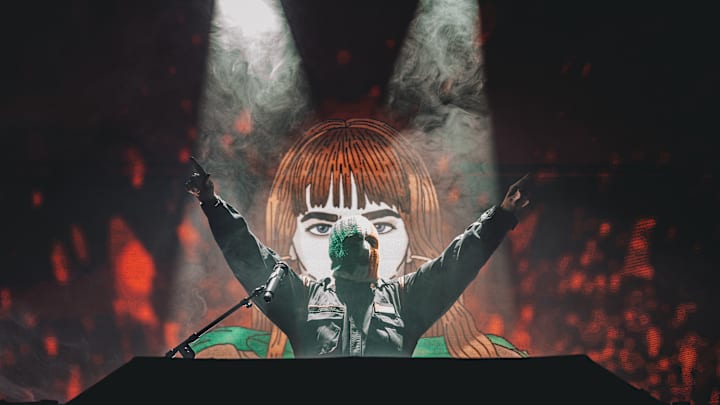Music has always tried to illuminate issues in the world. Musical artists are truly that: Artists. One must try to observe and react to what they see. Maybe we don't always agree with performers like Ted Nugent and his opinion on guns, but he should have the right to espouse his views.
Now, though, the worlds of politics and music are beginning to overlap even more. Recently, Bruce Springsteen made critical comments about the Trump administration while the Boss was performing in concert in Manchester, England. President Trump reacted to Springsteen's words by calling the singer names.
Trump also recently took to his personal social media network to suggest he could have the Justice Department investigate potential campaign fraud by Kamala Harris, whom he defeated in a run for the presidency in 2024. The president questioned whether Springsteen, U2's Bono, Beyoncé, and Oprah Winfrey were paid to campaign for Harris. There is no factual evidence of that happening.
Kneecap's Mo Chara faces a terrorism charge in London
On the other side of the band, Irish hip-hop trio Kneecap is facing its own issues. The group has always had politically laden lyrics, especially in terms of the Irish language being oppressed in Northern Ireland by the UK government. The trio has also been seen to display a flag in support of Hezbollah in concerts.
One such case was at the O2 Forum in north London in November 2024. While many months have passed since then, Kneecap member Mo Chara was charged on May 21 with a terror offense. Hezbollah and Hamas are illegal in the UK, and Chara's seeming support of them led to the charge.
The London Metropolitan police investigated the Kneecap concert after an online video of the event surfaced. Chara is now set to appear before a Magistrate on June 18.
The band has responded on social media, arguing against the charges and saying they are "political policing" and "We are not the story. Genocide is."
No matter which side of the political fence you stand on, the truth is that politics is beginning to have much more an interaction with music. The only thing left might be censorship.
